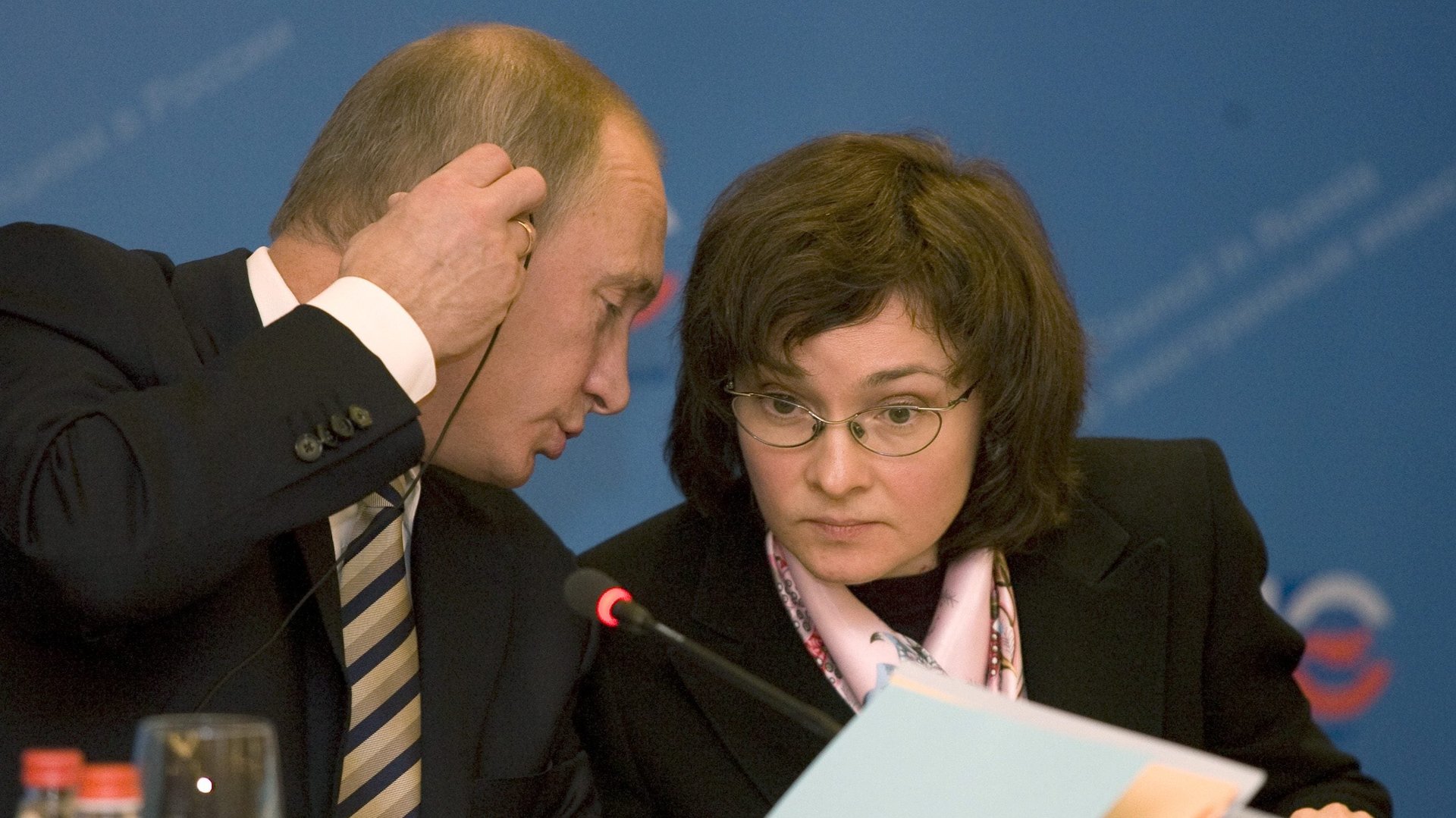Russia’s central bank is preparing for hyperinflation
The Russia-Ukraine war has sent global markets into a tizzy, including that of Russia itself.


The Russia-Ukraine war has sent global markets into a tizzy, including that of Russia itself.
In an emergency move, the Central Bank of Russia today (Feb. 28) raised its benchmark interest rates to an unprecedented 20% from 9.5% earlier amid crippling sanctions from the West in retaliation against Moscow’s invasion of Ukraine.
The move was aimed at countering risks of further depreciation in rouble and hyperinflation. In a bid to support the rouble, the central bank also ordered companies to sell 80% of their foreign currency revenues.
This is the second rate hike by the Russian central bank in February, which takes borrowing costs to their highest level in 19 years.
“External conditions for the Russian economy have drastically changed,” it said in a statement, adding that the rate hike “will ensure a rise in deposit rates to levels needed to compensate for the increased depreciation (in rouble) and inflation risk.”
Wider implications
The wartime crisis in Russia has left people worrying that new Western sanctions will result in cash shortages and disruption in payments. The impact is not likely to be limited to Russian borders, analysts say.
“These sanctions from the West are likely to eventually hurt trade flows out of Russia (around 80% of FX transactions handled by Russian financial institutions are denominated in USD), which will also hurt the growth outlook of Russia’s key trading partners including Europe and lead to greater inflationary pressures and risk of stagflation, we think,” Nomura analysts wrote in a research note.
This view was echoed by the International Monetary Fund (IMF) well. An escalation in the conflict will drive up the energy and commodity prices, thereby keeping consumer prices elevated for longer, according to IMF deputy managing director Gita Gopinath.
The rouble tanked nearly 30% to a record low against the dollar before Russian markets opened.